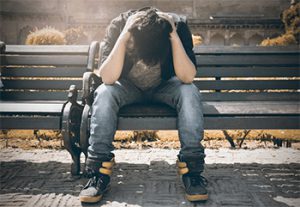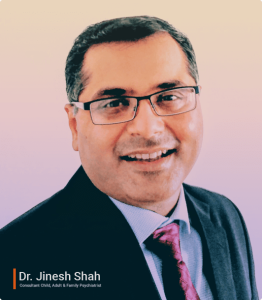 Coronavirus……COVID-19……Flu-like symptoms….Breathing difficulties….Isolation….Fever….Quarantine…..ICU….China…Europe…USA…India…Lockdown…Janta Curfew….and more…and more………
Coronavirus……COVID-19……Flu-like symptoms….Breathing difficulties….Isolation….Fever….Quarantine…..ICU….China…Europe…USA…India…Lockdown…Janta Curfew….and more…and more………
World News…Media…TV….FB…WhatsApp….gossips in homes…in offices… in phone calls….everywhere this is going on….
What are the signs of infection….what are the symptoms of infection….how can we check….how can we prevent infection……how can we treat infection….critical care for breathing….for circulation……guidelines….circulars…more and more…

WAIT! LET’S PAUSE! LET’S THINK….
Yes, it is very critical phase for all of us….but in the middle of all this panic… all this emergency care….What about our MIND…our mental health…our emotional well-being? Yes, all this is affecting our body….but is it not affecting our mind…..our emotions…?
Let’s think carefully. There are various ways and factors in which the Coronavirus Pandemic is interplaying with Mental Health. Let’s think about these factors or groups-
-
- The group of people who are not infected with Covid-19 virus, but do have an episode of fever, cough, flu-like symptoms- this group will be genuinely worried and stressed, dreading that they may have been infected.
- The group of people who unfortunately get infected with Covid-19 virus- they will be stressed and worried……no words can describe their stress. We are hearing news of some patients running away from hospitals, some patients attempting suicide, etc. The experience, the trauma, the grief, the bereavement, the time to recovery, the stigma……. Our full support to this group.
- Then, there will be the group of people who suffer from Anxiety disorders, Somatisation disorders, Hypochondriacal disorders- this group of people may experience increase in their symptoms and deterioration of their mental health.

- The families and carers of all the above groups will experience stress and this will have impact on their mental and emotional health.
- Let’s also keep in mind the general public around the above groups of people. We are already hearing about mob getting angry, mob reacting towards infected people or towards those suspected with infection. Submerged in this anger is anxiety and fear, unhelpful beliefs, etc and this may lead to low mood or more anxiety.
- The other aspect to think about is- the impact of the epidemic and pandemic on the economy…….the slow down…the fall in Stocks and Equities….the monetary and financial impact. This will cause stress and hence impact mental and emotional health.
- Related to above- what about the group who survives on daily wages? The closures, slowdown, etc will impact on their ability to manage life. Hence, the impact on their mental health, and on their dependant’s, too.

- Let’s think of another group- the healthcare staff (doctors, nurses, ambulance staff, paramedics, lab technicians, support staff, etc). On one hand will be the anxiety of getting infected. On the other hand, there will be the impact of fatigue, over-work, exhaustion, low staffing, increased demand. Also, the lack of vaccine, curative medicine, etc will have an impact on their morale and confidence. Needless to say, the healthcare worker’s families will also be impacted by the mental and emotional health of the worker.
- Let’s consider another aspect- social distancing, self-quarantine, lockdowns, schools closed, offices closed, malls, cinemas, restaurants closed, work from home, domestic helps not able to come, can’t leave home……..….all this means everyone at home 24X7, no breaks from each other…no distractions available….tempers may fly, patience may be lost, tantrums may flare.

- Also, lack of above activities may mean that people are more glued to social media, FB, WhatsApp, etc……more rumours…more news…some true, some false…… hence, more anxiety, more stress.
- Let’s also think that as healthcare services are impacted, hence appointments, reviews, surgeries, treatments, etc for other conditions are also impacted. People with other chronic Physical conditions may experience a period of decreased support and care. People with existing Mental Health conditions may also experience decreased support and care. This will trigger further stress for these group of people. And, for their families and carers, too.
This list can go on…and on.
We are not realising the impact on our Mental and Emotional Health. This is probably because our hands are already full of worrying about the physical health impact of the Covid-19 pandemic. The soft signs of mental and emotional health easily submerge within the physical health worries or we try to brush them aside and ignore them or we minimise them. Whether we chose to recognise them or we chose to ignore them, they do exist.
The idea behind above is not that we start thinking that mental health crisis is inevitable, and we all need medicines or specialist treatments. The idea is to stimulate us to think, to be mindful, to be aware, to self-monitor. By being mindful and aware, most of the work is already done in looking after our mental and emotional health. Problems arise when one ignores this. By being aware and mindful, we will be able to look for early signs, act early before it becomes a bigger problem, and prevent further deterioration. We can also do the same for our near and dear ones around us, be aware of their emotional health and support them.
If we remain aware and self-monitor, then several early interventions can be done, and these will prevent further worsening. Such interventions are specific to the individual. A person will himself or herself know what will work and what will not work. There can’t be a universal remedy. Each person, each mind is individual; and hence every person, every mind has its own way to keep well. The things to consider can be-
 Self-help activities- our hobbies, our interests which refreshes us, which distracts us, which rejuvenates us. It could be reading, writing, drawing, singing, dancing…….and so on. Due to the current situation, there will be limitation in doing most of the group activities or outdoor activities. Examples like swimming, playing cricket, traveling, etc will not be feasible and other possible alternatives should be developed.
Self-help activities- our hobbies, our interests which refreshes us, which distracts us, which rejuvenates us. It could be reading, writing, drawing, singing, dancing…….and so on. Due to the current situation, there will be limitation in doing most of the group activities or outdoor activities. Examples like swimming, playing cricket, traveling, etc will not be feasible and other possible alternatives should be developed.- Self-therapy activities- Mindfulness based activities, meditations, etc can also help. Individuals will have ways of helping based on their belief systems, faiths, religions, spirituality, culture, social systems, etc.
- People who already are on a treatment regime for mental health, should adhere to it and refrain from becoming non-compliant. They may have to cope with delays in review appointments, or with shorter quick review appointments. Adhering to the recovery plan and getting support from others like families and friends, to tide over this period may prove helpful.
- Managing social media, using it only as necessary, refraining from using it overwhelmingly, etc may also help. We need to realise that whatever we read or see, impacts our mind. So, best is to use selected things to impact our mind. Maybe, just use very few selected forums which we feel assured that they provide real facts.

- Most of us will not need anything more than the above. However, some of us may need to seek specialist help. They should consider getting assessed by a suitably qualified Psychiatrist. A Psychiatrist is a medically qualified professional who specialises in Mental and Emotional Health Disorder. Psychiatrist assesses, diagnoses, formulates and creates a treatment plan. This treatment plan may involve specialist therapies or medications or both. One should not think that seeing a Psychiatrist means invariably ending up with being prescribed medications. In most of the cases, the treatment plan may not include taking medications. One needs to be aware of this and should monitor self. And seek appropriate specialist help without delay.
I would like to end by just saying this-
Stress reduces our immunity. We all know this. So, let’s manage our stress. Let’s look after our and others’ Mental and Emotional Health and Well-Being.
In these difficult times, I wish WELL for ALL.








